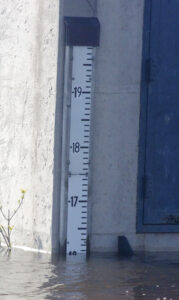Back when Bill Clinton was running for president, his campaign office famously had a sign on the wall that read, “It’s the Economy, Stupid.” It was how they reminded themselves what issue most concerned the voting public. Smart politicians would recognize that most people see corporate greed as the root of our economic problems, and adjust the sign on their wall accordingly.
For two generations, we have watched a handful of rich people hoard the wealth while the rest of us struggle more and more to get by. There’s a limit to how much the monarchs of our world can impoverish the rest of us before angry mobs with torches and pitchforks appear at the castle gates, and Occupy Wall Street is the modern equivalent of that angry mob.
Corporate funded media pundits feign mystification as to the grievances or demands of the 99-percenters. The truth is that these shills can’t say “corporate greed” (grievance) or “economic justice” (demand) out loud. After all, they’re employed by some of the largest corporations in the world, so they wouldn’t dare say anything favorable about the demonstrators. So all they have to offer are insults, ridicule and shoulder-shrugging.
Let me illustrate how greedy the banks have become during my lifetime. My first savings account had an interest rate that fluctuated between 4% and 5%. So if I had $10 in the bank for a year, I had $10.50 at the end of the year. That’s right, I made 5% interest on $10. My student loans had a 7% interest rate, and consumer loans typically were at 9%. Credit card interest rates of 12% were considered an outrage.
So if the bank charged 8% interest on a loan, their “cost” was the 5% they paid the depositors, so they made a 3% profit on the loan. (This sets aside their ability to loan out $5-10 for every dollar in deposits.) Bankers had no problem making a decent living under these conditions.
But now a savings account yields 0.5%, and that’s only if you have thousands of dollars in the bank. Meanwhile, consumer loans below 10% are rare, and credit card interest rates that low are little more than a dream. So the entire (typical) 12% interest rate the bank makes on a loan is gravy, since the depositors get next to nothing. Yet the banksters cry for more, and every time their price gouging is restrained, they find another fee to raise to make up for it.
This is one example among hundreds of how the rich are ripping off the rest of us, and of how the American dream has been crushed. As we were growing up, we were told this was a great country because if you played by the rules, worked hard, and got educated, then you would be taken care of and there was no limit to what you could achieve. But now millions of people who played along find their jobs shipped off to China, and those lucky enough to still have jobs work at poverty wages with no benefits.
So what was once the most prosperous country in the world has become a feudal society, where the money monarchs steal, swindle and hoard the wealth while leaving the rest of us with nothing. And then they wonder what the Occupy Wall Street movement is complaining about.
The great success of the Occupy movement (as of now) is that a national conversation has been started. We are aware that the system is broken, and we know why it’s broken. Now we must develop and enact a series of solutions to bring fairness, equality and opportunity back into our society.
I have a list of ideas that I intend to throw out into the ether for discussion in a series of posts over the coming days and weeks (as time permits). The money monarchs now own every square of the metaphorical Monopoly board we live on, and they’ve also seized all of the money. Now we need to change the rules so that the rest of us can find a way to survive and thrive.
Stay tuned.
Proposals (updated Nov 9, 2011):
How Much is Enough? The Case for a Maximum Wage

























